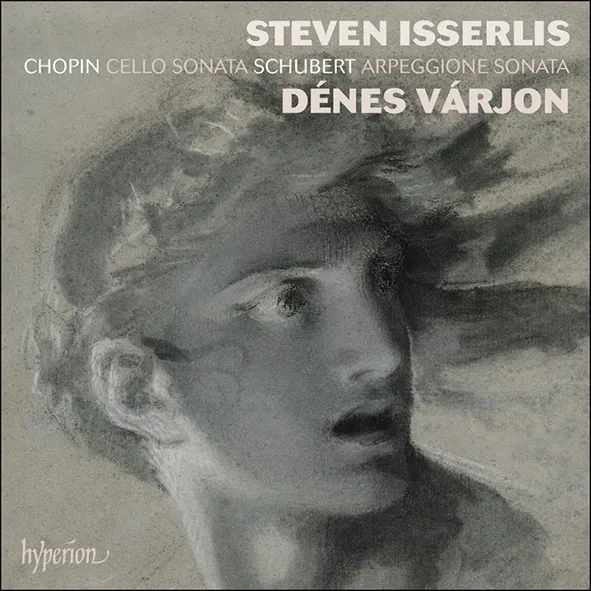
Chopin Cello Sonata; Nie ma czego trzeba (arr. Isserlis); Franchomme: Nocturne in C minor, Op. 15/1; Schubert Arpeggione Sonata; Nacht und Träume (arr. Isserlis) Steven Isserlis (cello), Dénes Várjon (piano) Hyperion CDA 68227 77:21 mins
We have friendships to thank for these miraculous, anomalous cello sonatas: cellist Auguste Franchomme inspired Chopin’s magnificent, complex late work, while Schubert’s poignant masterpiece was for the eccentric arpeggione-playing Vincent Schuster. There are plenty of good recordings: Truls Mørk and Kathryn Stott offer poise and profundity, Pieter Wispelwey achieves violinistic brilliance on gut strings, and Rostropovich left indelible readings with Argerich and Britten respectively. Isserlis’s insistence on an 1851 Erard piano lends this recording its distinctive atmosphere and rebalances the score, the sinewy cello ideally matched to a slightly brittle piano.
Chopin’s Sonata has been lumped with the Rachmaninov as a piano sonata with lyric cello obbligato. The exchange between the instruments is, in fact, intensely intricate, and Várjon and Isserlis shine a light into corners of the score previously swathed in Steinway velvet. Both interrogate the richly-worked, ballade-like first movement with searing intelligence and tight rhythmic tension, unleashing its wild volatility. How characteristic that a cadential figure which in most recordings feels pause-like is, for Isserlis, the beginning of a new story. But feverish dynamism is contrasted with moments of exquisite poetry: a blistering, nervy scherzo with a trio that respects Chopin’s original marking of più lento; and the sublime Largo, here delivered with heart-breaking simplicity. Perhaps only in the finale I missed the sheer tumult afforded by a Steinway. The solemn innocence of Schubert’s Arpeggione is prefigured here by Isserlis’s arrangement of Chopin’s achingly beautiful ‘Nie ma czego trzeba’. Again, in this Sonata, the duo offer graceful transparency, lithe refinement with a compelling edginess. Schubert’s dances cast dark shadows, tears glisten through the Adagio’s consoling melodies. Spellbinding.
Helen Wallace